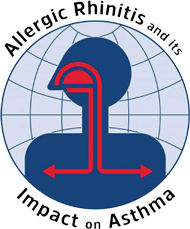Allergic Rhinitis and its Impact on Asthma (ARIA)
The international ARIA guidelines on the pharmacological management of allergic rhinitis now include Dymista®.1
The original 2010 ARIA guidelines were the first evidence-based recommendations in allergy to follow the Grading of Recommendations, Assessment, Development, and Evaluation (GRADE) approach. In the GRADE system, recommendations are classed as “strong” or “conditional”, depending on the guideline panel’s confidence that following the recommendation would be more beneficial than harmful to patients.
The ARIA guideline panel included allergists, ear-nose-throat specialists, pulmonologists, general practitioners, and paediatricians.
The guidelines are aimed primarily at primary care clinicians, school nurses, pharmacists, specialists in allergy and clinical immunology, general internists managing patients with allergic rhinitis, and paediatricians.
Dymista® is indicated for relief of symptoms of moderate to severe seasonal and perennial allergic rhinitis if monotherapy with either intranasal antihistamine or glucocorticoid is not considered sufficient.2
- Next-generation Allergic Rhinitis and Its Impact on Asthma (ARIA) guidelines for allergic rhinitis based on Grading of Recommendations Assessment, Development and Evaluation (GRADE) and real-world evidence. Available at https://www.jacionline.org/action/showPdf?pii=S0091-6749%2819%2931187-X. Last Accessed: November 2023.
- Dymista®. Summary of Product Characteristics. Available at: https://www.medicines.org.uk/emc/product/9450/smpc. Last Accessed: November 2023.
DYM-2023-0849 November 2023
Viatris Connect is an online platform for UK health Professionals.
Across the website you will find news, blogs and product information.
Register to Viatris Connect today
Please note that the website contains promotional and non-promotional material including educational content and resources to help you and your patients.
REGISTER NOW


